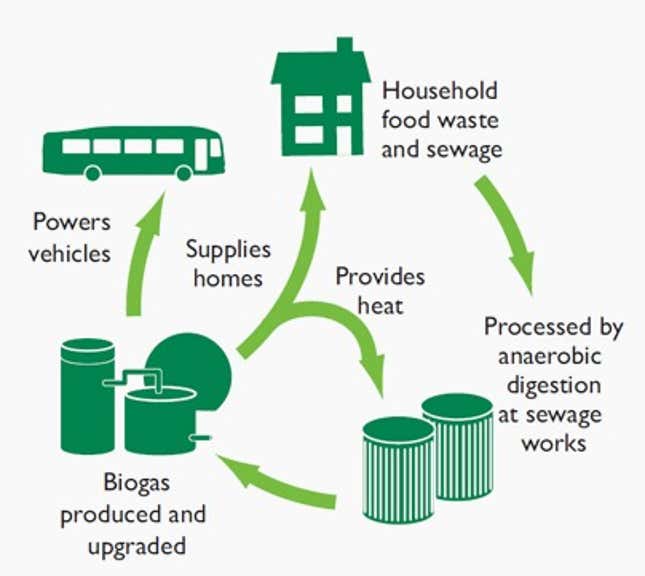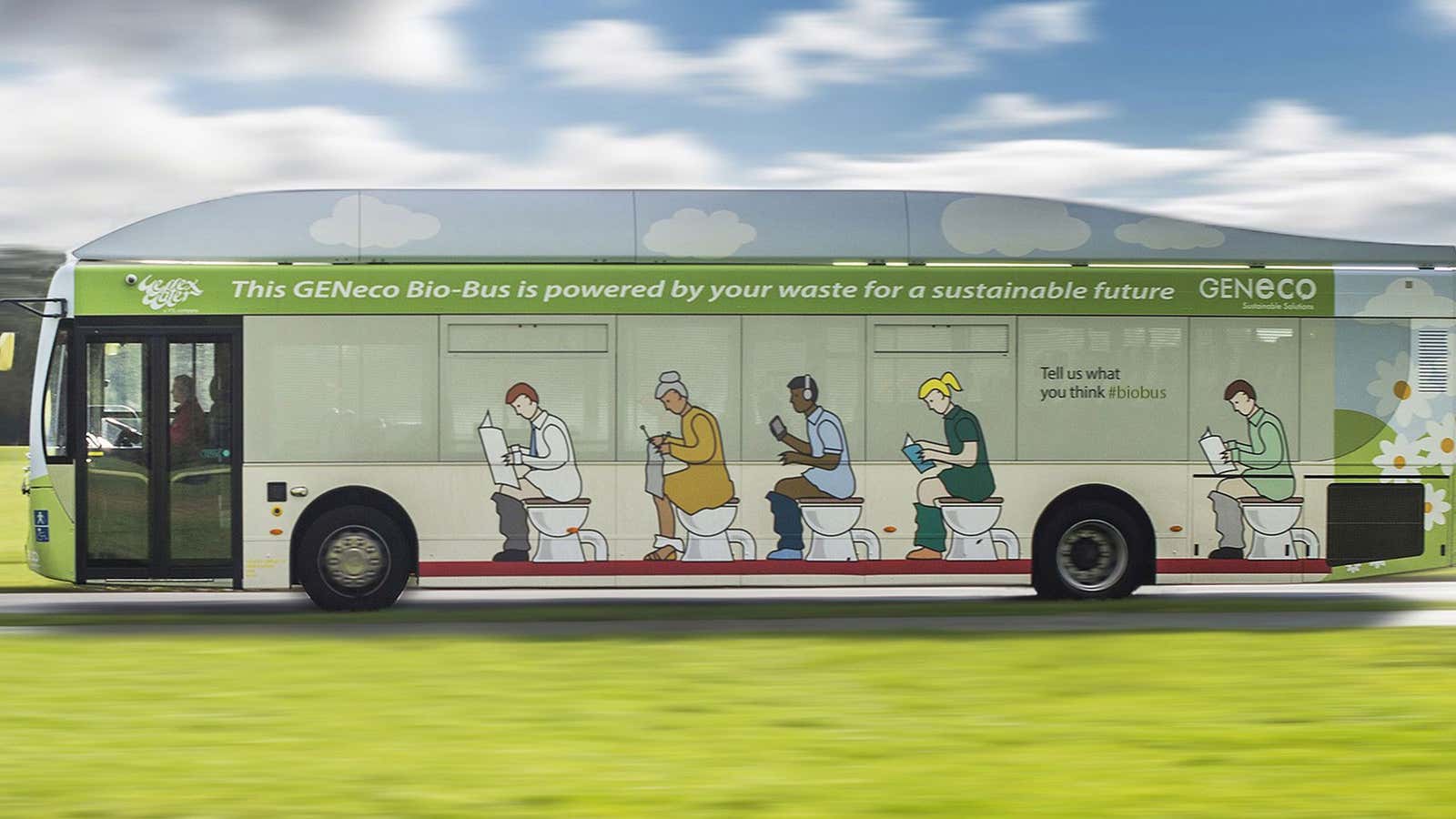Public transport powered by human waste and sewage could be the next big trend in sustainable energy. For real.
The UK’s “Bio-Bus” embarked on its maiden voyage today, running entirely on biomethane gas produced by treating waste and sewage at a plant run by the biotechnology company GENeco. The 40-seat bus operated by Bath Bus Company will ferry passengers between Bath and Bristol Airport. It can travel 186 miles on one tank of gas, which requires roughly the annual waste of five people to fill.

The poop bus could actually improve air quality, as biomethane produces fewer emissions than regular diesel fuel does. In a press release, GENeco general manager Mohammed Saddiq said that the Bio-Bus “is actually powered by people living in the local area, including quite possibly those on the bus itself.”
The Bio-Bus’s existence is not without precedent. In 2010, the Greenfuel Company converted a Volkswagen Beetle to run on biogas. In 2009, the city of Oslo, Norway converted 80 public buses to run on biomethane. And some European countries, like Sweden, have been using biogas to power vehicles for years.
Toilet humor aside, biomethane gas is a legitimate source of renewable energy. Governments should not constipate the efforts to introduce new forms of energy into public transit systems. There really should be poop buses on every street.
